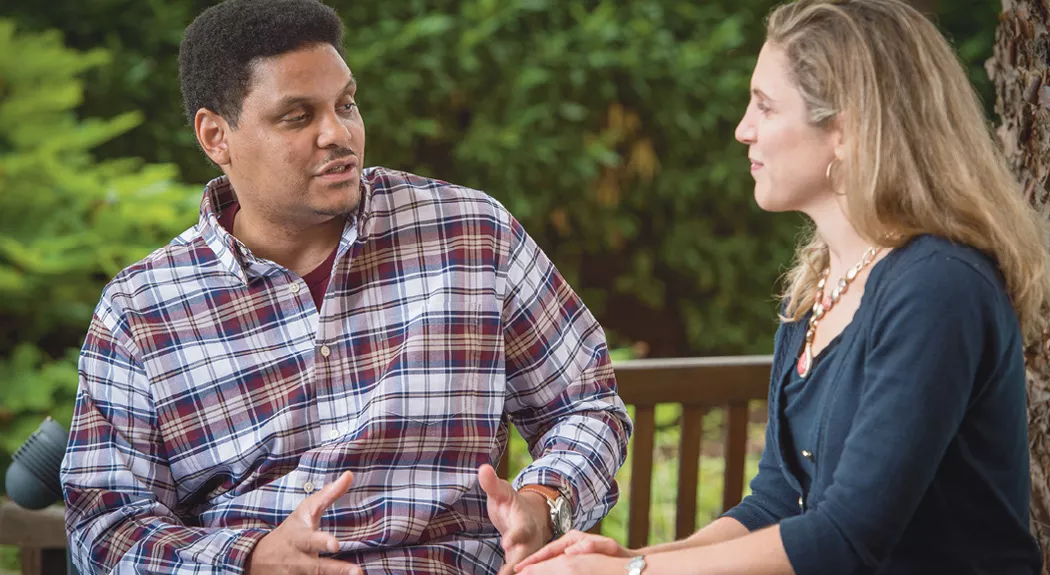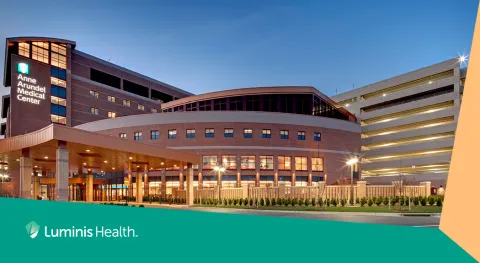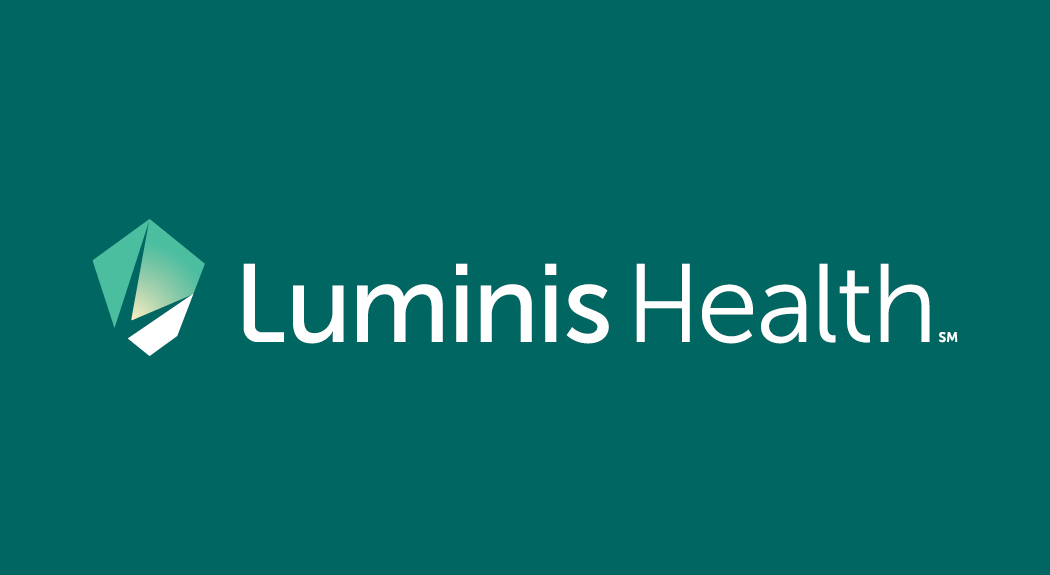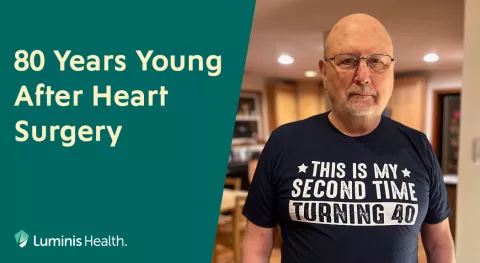by Luminis Health

Earl Shellner
worked with Speech
Language Pathologist
Rebecca Gondak to
recover from mental
fuzziness following
chemotherapy, and
is now sharing his
experience and helping
others as a patient and
family advisor at AAMC.
Earl Shellner had just completed a long course of chemotherapy to treat aggressive rectal cancer when he and his family began to notice something was seriously wrong: He was experiencing frequent memory lapses.
Earl found himself forgetting basic life skills, such as how to use his toothbrush or write out certain letters. “I couldn’t remember how to make a cursive S or a J,” he recalls. “I had to look it up on the Internet, how to make the curves for those letters.”
His family also noticed he was telling the same stories over and over again in the same day without realizing he was repeating himself.
When Earl mentioned these lapses to his medical team, they told him the problem was very likely “chemo brain,” a term describing cancer-therapy-associated cognitive deficits. Basically, the strong drugs used to treat Earl’s cancer had disrupted some of the neural pathways in his brain. Reports indicate that as many as 70 percent of patients who receive chemotherapy experience symptoms anywhere from mental “fuzziness” to memory lapses to problems following through on tasks.
Rebecca Gondak, a speech language pathologist with Anne Arundel Medical Center’s Cancer Rehabilitation program, worked with Earl, practicing exercises that helped him carry out tasks like shopping for groceries and recalling names. Earl was particularly excited when he and Rebecca worked out a clue for helping him remember the name of his 14-year-old neighbor. “I learned how to use a mnemonic device,” says Earl. “When I saw the young man, I would think of a calendar and the first letters of July-August-September-October-November to spell ‘JASON.’”
Now, after making significant progress on his cognitive tests, Earl has become a patient and family advisor at AAMC. In this role, he is informing medical center staff, as well as cancer patients, friends and family—everyone he can—about chemo brain.
“I have given a speech to hospital administrators,” he says. “And when I am at the infusion center, I ask patients if they know about chemo brain. A lot of them don’t, so I lead them in the right direction [to get help].”
Learn more about Cancer Rehabilitation, a certified STAR Program® at AAMC, by calling 443-481-3805.


